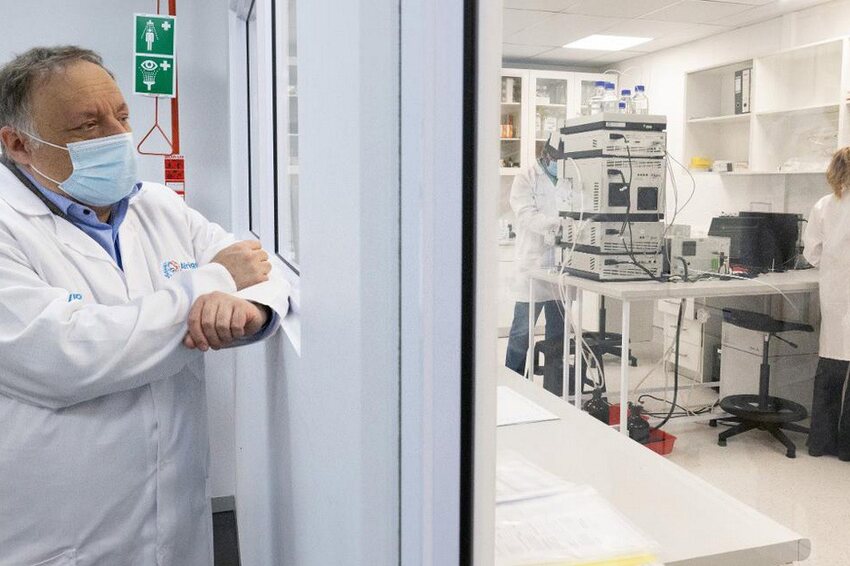In the wastewater of the first two passenger planes from China that landed at Brussels Airport, the Leuven Rega Institute detected "reassuringly" low levels of Covid-19, announced virologist Marc Van Ranst (KU Leuven).
The first two planes from China arrived at Brussels Airport in Zaventem on Saturday and Tuesday. While lab manager Elke Wollants said that the first sample was still too thin and watery, Van Ranst said that the second one was "perfect."
"It was the same stuff you would find in the cesspit at your home, so exactly what we want," he told Belga News Agency, adding that "very low levels of SARS-CoV-2" were found in the sample, which is "good and reassuring news."
"Even though there is a lot of virus circulation in China, we found very little virus in the samples," Van Ranst added. "This suggests that people on the planes, who boarded with a negative test, may also effectively be negative."
Sampling and sharing sequences
To detect Covid-19 variants, there was too little virus present in the sample. However, other viruses and bacteria were found, which should be present in human stool in any case. From this, Van Ranst deduced that the analysis technique is on point and sensitive enough to detect viruses.
Over the next few weeks, the Rega Institute will continue analysing sample sewage and stool samples from Chinese passenger planes.
Additionally, while virus sequencing is vital to detect and track new variants, sharing this information is equally important and must be stepped up globally, said the head of the World Health Organisation (WHO), Tedros Adhanom Ghebreyesus. "Since the peak of the Omicron wave, the number of sequences being shared has dropped by more than 90%, and the number of countries sharing sequences has fallen by a third."
He added that the first sequence of SARS-CoV-2, the virus that causes Covid-19, was shared with the world three years ago, which enabled the development of tests and vaccines against the disease. "We urge all countries now experiencing intense transmission to increase sequencing, and to share those sequences."
Related News
- Belgium requires negative Covid-19 test for travellers from China
- New Covid-19 subvariant XBB.1.5 advancing in the US
- Covid-19 tests on Chinese planes' wastewater come back positive
A WHO advisory group has also published an assessment of the new Omicron subvariant – XBB.1.5 – which first emerged last October. Sequences have been reported from 38 countries, though mainly from the United States.
"Based on its genetic characteristics and early growth rate estimates, XBB.1.5 may contribute to increases in case incidence," said the Technical Advisory Group on Virus Evolution (TAG-VE). "To date, the overall confidence in the assessment is low, as growth advantage estimates are only from one country, the US."

